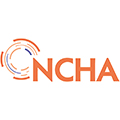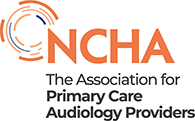06 November 2020
Covid-19 news – Friday roundup - 6 November
Following our Monday update and others during the week on our social media feed, here is a summary of the main news this week.
- England lockdown FAQs
- Economic support extended for all UK businesses
- Financial support extended for the self-employed
- Consultations update
- Other sector news
Members have been in touch to ask questions about the national lockdown in England. The FAQs recap on our guidance and advice throughout the week:
Can we remain open?
Yes. In our Monday update, we set out how community audiology could stay open throughout the November lockdown in England.
The government has since confirmed in the latest Coronavirus regulations that audiology services can remain open. You can access the regulations which permit you to open on para 47, page 32 of The Health Protection (Coronavirus, Restrictions) (England) (No. 4) Regulations 2020.
AIHHP, BAA, BSA and BSHAA also confirmed on Tuesday that audiology should continue to meet needs throughout the lockdown. Read the statement.
Members should continue to follow sector Covid-19 audiology and otology guidance and use our Covid-19 resource hub for support and advice on working in a Covid-secure way.
When can people travel to see us?
Official government guidance sets out when people can leave their home, including:
- Leaving home for any medical reason, appointment or where people are concerned about their health. This includes healthcare checks, for example, hearing tests.
- Leaving home to buy goods or service from premises that are open, including essential retail. Audiology services are permitted to remain open in law, and therefore people can travel to see you.
Where possible, however, try and reduce travel by offering alternatives - e.g. postal services and remote care.
You should also note that people who are classified as clinically extremely vulnerable to coronavirus are advised to avoid all non-essential travel during the national lockdown. Your triage process should take account of the Covid and non-Covid risks when prioritising remote care and face-to-face appointments.
What about staff who are clinically extremely vulnerable?
The government has advised that people who are clinically extremely vulnerable to coronavirus should work from home. If they cannot work from home, they "are advised not to go to work and may be eligible for Statutory Sick Pay (SSP) or Employment Support Allowance (ESA)". If they were on payroll before 30 October 2020, they might be eligible for the extended Coronavirus Job Retention Scheme (CJRS).
The government will also be writing to everybody who is classified as clinically extremely vulnerable with detailed advice while the new restrictions are in place.
Read the latest guidance on shielding and protecting people who are clinically extremely vulnerable from Covid-19.
For more support and advice
Members can contact us for additional support or advice by emailing [email protected] or calling us on 020 7298 5110.
You can also email any HR and health and safety-related questions to [email protected] or call us on 01244 687 602.
2. Economic support extended for all UK businesses
The government has extended the UK-wide Coronavirus Job Retention Scheme, also known as the furlough scheme, to 31 March 2021.
Furloughed employees will receive 80% of their usual salary for hours not worked, up to a maximum of £2,500 per month, with the cap being proportional to the hours not worked.
Read the latest HMRC guidance on the extended furlough scheme.
3. Financial support extended for the self-employed
The self-employment income support scheme (SEISS) has been extended in the form of two further grants.
HMRC has confirmed this will cover November 2020 to January 2021 and February 2021 to April 2021. The grant will now be based on 80% of average monthly trading profits, with a maximum three-month grant of £7,500. This amounts to a maximum of £2,500 per month, to provide the same level of support as the CJRS.
Eligibility criteria for the grant remain unchanged. The HMRC is to publish more details on the next claim window in due course.
NCHA has recently responded to the NSC consultation on adult screening, as well as the HCPC consultation on standards of proficiency, and taken part in proposed reforms to the NHS reimbursement system in England. The policy team has also worked with FODO to respond to the HM Treasury fundamental review of business rates
We will shortly be launching a new website where it will be even easier to review our consultation submissions and to take part in the policy work that we do on your and the wider sector's behalf. Remember, if you want to take part in any consultation we are working on, email the policy team at [email protected].
Action on Hearing Loss has now completed its switch back to its RNID brand. The RNID now has a new logo and website. Learn more.
The BBC this week carried a story on how an earwax test could reveal stress levels. It follows a small sample explorative study which suggests cortisol levels in earwax might provide a surrogate outcome for stress levels. Read more.

Press enquiries
Media enquiries should be directed to [email protected] or call 020 7298 5110.
We are happy to put you in touch with our expert policy advisers who can comment on a variety of issues.
You can also follow us on Twitter and LinkedIn.

 Your hearing and aural health
Your hearing and aural health  Commissioners and Policymakers
Commissioners and Policymakers  Member support and guidance
Member support and guidance News and views
News and views
 Hearing map
Hearing map
